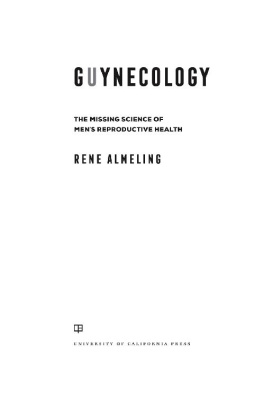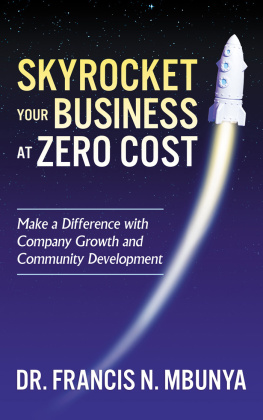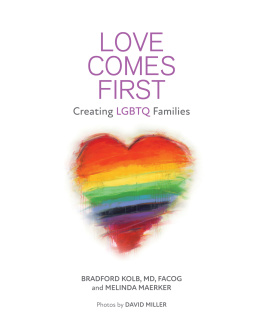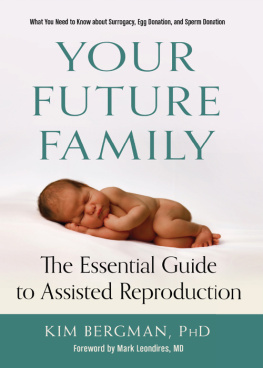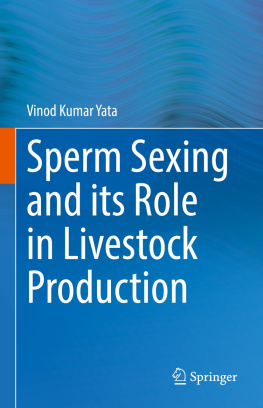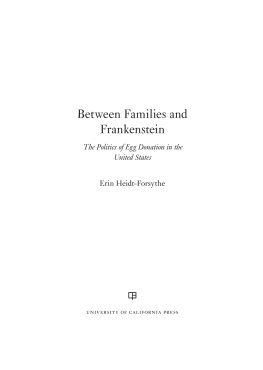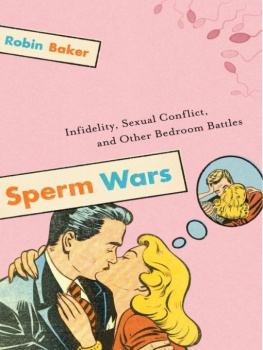Sex Cells
The publisher gratefully acknowledges the generous support of the General Endowment Fund of the University of California Press Foundation.
Sex Cells
THE MEDICAL MARKET
FOR EGGS AND SPERM
RENE ALMELING

University of California Press, one of the most distinguished university presses in the United States, enriches lives around the world by advancing scholarship in the humanities, social sciences, and natural sciences. Its activities are supported by the UC Press Foundation and by philanthropic contributions from individuals and institutions. For more information, visit www.ucpress.edu .
University of California Press
Berkeley and Los Angeles, California
University of California Press, Ltd.
London, England
2011 by The Regents of the University of California
Library of Congress Cataloging-in-Publication Data
Almeling, Rene
Sex cells : the medical market for eggs and sperm / Rene Almeling.
p. cm.
Includes bibliographical references and index.
ISBN 978-0-520-27095-4 (hardcover : alk. paper)
ISBN 978-0-520-27096-1 (pbk. : alk. paper)
1. Artificial insemination, HumanEconomic aspects. 2. Artificial insemination, HumanMoral and ethical aspects. 3. InfertilityTreatmentEconomic aspects. 4. Surrogate motherhoodEconomic aspects. I. Title.
HQ761.A46 2011
381'.45618178dc22
2011008654
Manufactured in the United States of America
20 19 18 17 16 15 14 13 12 11
10 9 8 7 6 5 4 3 2 1
In keeping with a commitment to support environmentally responsible and sustainable printing practices, UC Press has printed this book on Rolland Enviro100, a 100% post-consumer fiber paper that is FSC certified, deinked, processed chlorine-free, and manufactured with renewable biogas energy. It is acid-free and EcoLogo certified.
Contents
Acknowledgments
As a nineteen-year-old undergraduate, I read an essay by Katha Pollitt on the Baby M surrogacy trial. I became fascinated by the complex issues associated with the prospect of women selling reproductive services and wrote a senior thesis under the wonderful mentorship of Elizabeth Long, the sociology professor who had assigned the essay. More than a decade later, this book is part of an ongoing attempt to sort through the questions raised by bodily commodification, and I am grateful for the chance to express my appreciation to all those who have made it possible.
First, a heartfelt thanks to the staff and donors at the programs where I conducted research. Each person I spoke with was so generous with their time, and I cannot thank them enough for their patience in answering my many questions.
I am also deeply grateful to my dissertation committee: Gail Kligman, Ruth Milkman, Abigail Saguy, and Carole Browner. As chair of the committee, and from my first semester in graduate school, Gail has been an ideal mentor, spending time talking with me about ideas, providing detailed feedback on my writing, and inspiring me with her high standards of scholarship. Early conversations with Ruth, Abigail, and Carole helped orient me to sociological and anthropological thinking on gender, work, medicine, and the body, and ever since, they have provided crucial intellectual guidance and enthusiasm for this project.
There are a number of scholars who have engaged with my research along the way, sharing useful insights and providing helpful comments. First and foremost in this category is Stefan Timmermans, who provided detailed feedback on several of the chapters and was always available to talk over snags in the writing process. I am fortunate to have met Kieran Healy while I was still working on my masters thesis (which eventually became ), and ever since, he has been an absolutely essential interlocutor on this project. Both he and Diane Wolf read the entire book manuscript and provided excellent suggestions for refining it. Andrew Deener has provided extremely useful comments on more than one version of most chapters in this book. I thank Greta Krippner for conversations we had as I was crafting the dissertation proposal. Thanks also to the following people who provided helpful comments on various chapter drafts: Gabriel Abend, Jeffrey Alexander, Claudio Benzecry, Elizabeth Bernstein, Elizabeth Ettorre, John Evans, Adrian Favell, Carrie Friese, Kurtulus Gemici, Jerry Jacobs, Rob Jansen, Joanna Kempner, Kimberly Krawiec, Sandy Levitsky, Cameron MacDonald, Suzanne Pelka, Gabrielle Raley, Kevin Riley, Daisy Rooks, Barbara Katz Rothman, Kristen Schilt, Beth Schneider, Sara Shostak, Elly Teman, Emily Wentzell, Owen Whooley, Viviana Zelizer, Lynne Zucker, and anonymous reviewers for American Sociological Review and New Genetics and Society.
Research funding for this project came from the National Science Foundation, the UCLA Graduate Division, the UCLA Sociology Department, the UCLA Center for Society and Genetics, and the UCLA Center for the Study of Women. A postdoctoral fellowship from the Robert Wood Johnson Foundation Scholars in Health Policy Research Program included time to revise the dissertation into a book, and while in residence at the UC Berkeley/UCSF site, I benefited from the mentorship of Dan Dohan, Charis Thompson, Joan Bloom, Carroll Estes, Neil Smelser, and John Ellwood. I completed the final draft of the book as a new faculty member in the sociology department at Yale, and I thank my colleagues for our conversations about the project. It has been a pleasure to work with Naomi Schneider at the University of California Press, which is home to many of the books on gender and reproduction that have shaped my thinking.
For their ability to manage any and all questions and problems, I am deeply appreciative of Marlies Dietrich and Linda Schulman (UCLA Sociology Department), Carlene Brown (UCLA Center for Society and Genetics), Seana Van Buren and Stacy Gallagher (Robert Wood Johnson Foundations UCBerkeley site), and Pam Colesworthy (Yale Sociology Department). Susan Paulukonis, Cecily Miller, Carmen Krol, Hae Jin Kang, Winifred Ko, and Christine Ilagan provided excellent research assistance. Lynda Klopatek efficiently and accurately transcribed the majority of the interviews.
Earlier versions of part of the Introduction and most of was published in Why do you want to be a donor?: Gender and the Production of Altruism in Egg and Sperm Donation in New Genetics and Society 25 (2006): 143157.
Thank you to the family and friends who hosted me as I traveled for research and writing: David Almeling, Warren and Veronika Ostergren, Briana Patterson and Chris Dente, Carla Eckhardt, and Matt Carrigan. Thanks also to all of those who e-mailed news stories and sent clippings over the years. My late grandmother, Lorraine Almeling, was particularly indefatigable in this regard, even writing to The Oprah Winfrey Show to request a transcript for an episode on sperm donation.
My parents, Guy Almeling and Linda Sebastian, probably never thought I would build on their professional interests in economics, health care, and psychology by writing a sociological study of the market for sex cells, but there is no question that their curiosity about the world has shaped me in more ways than I realize. I especially want to thank them for teaching me how to ask questions and how to listen to the answers.
For the last fifteen years, I have had the unbelievable good fortune of sharing my life with Jeff Ostergren. In a million different ways, he has been supportive of everything I ever wanted to do, and the words to properly acknowledge him do not exist.
Introduction
Next page

